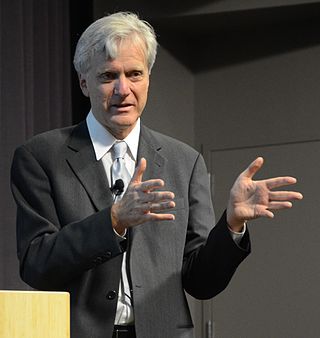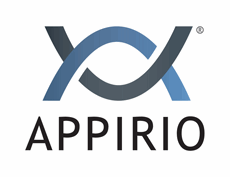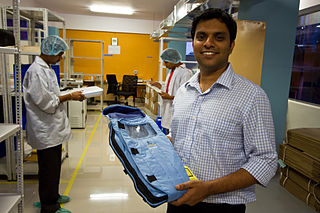
Vinod Khosla is an Indian-American billionaire businessman and venture capitalist. He is a co-founder of Sun Microsystems and the founder of Khosla Ventures. Khosla made his wealth from early venture capital investments in areas such as networking, software, and alternative energy technologies. He is considered one of the most successful and influential venture capitalists.

Andreas Maria Maximilian Freiherr von Mauchenheim genannt Bechtolsheim is a German electrical engineer, entrepreneur and investor. He co-founded Sun Microsystems in 1982 and was its chief hardware designer. As of July 2024, Forbes estimated his net worth at $24.3 billion.
A business incubator is an organization that helps startup companies and individual entrepreneurs to develop their businesses by providing a fullscale range of services, starting with management training and office space, and ending with venture capital financing. The National Business Incubation Association (NBIA) defines business incubators as a catalyst tool for either regional or national economic development. NBIA categorizes its members' incubators by the following five incubator types: academic institutions; non-profit development corporations; for-profit property development ventures; venture capital firms, and a combination of the above.
Social venture capital is a form of investment funding that is usually funded by a group of social venture capitalists or an impact investor to provide seed-funding investment, usually in a for-profit social enterprise, in return to achieve an outsized gain in financial return while delivering social impact to the world. There are various organizations, such as Venture Philanthropy (VP) companies and nonprofit organizations, that deploy a simple venture capital strategy model to fund nonprofit events, social enterprises, or activities that deliver a high social impact or a strong social causes for their existence. There are also regionally focused organizations that target a specific region of the world, to help build and support the local community in a social cause.
The phase-change incubator is a low-cost, low-maintenance incubator that tests for microorganisms in water supplies. It uses small balls containing a chemical compound that, when heated and then kept insulated, will stay at 37 °C for 24 hours. This allows cultures to be tested without the need for a laboratory or an expensive portable incubator. Thus it is particularly useful for poor or remote communities. The phase-change incubator was developed in the late 1990s by Amy Smith, when she was a graduate student at MIT. Smith has also started a non-profit organization called A Drop in the Bucket to distribute the incubators and to train people on how to use them to test water quality. Her “Test Water Cheap” system could be used at remote locations to test for bacteria such as E.coli.

Bangalore or Bengaluru, the capital city of the South Indian state of Karnataka, India. The economy of Bengaluru contributes over 43.65% to the economy of the State of Karnataka, accounting for 98% of the Software Exports of the State.

The California Institute for Quantitative Biosciences (QB3) is a nonprofit research and technology commercialization institute affiliated with three University of California campuses in the San Francisco Bay Area: Berkeley, San Francisco, and Santa Cruz. QB3's domain is the quantitative biosciences: areas of biology in which advances are chiefly made by scientists applying techniques from physics, chemistry, engineering, and computer science.
The Office of Social Innovation and Civic Participation was an office new to the Obama Administration, created within the White House, to catalyze new and innovative ways of encouraging government to do business differently. Its first director was the economist Sonal Shah. The final director was David Wilkinson.

Appirio, a Wipro company, was an information technology consulting company headquartered in Indianapolis, Indiana that offered technology and professional services to companies wishing to adopt public cloud applications. This included Software-as-a-Service and Platform-as-a-Service technologies like Salesforce.com, and Google Apps. Appirio ran as a serverless company, utilizing only public cloud solutions and no in-house datacenter.
Frugal innovation or frugal engineering is the process of reducing the complexity and cost of a good and its production. Usually this refers to removing nonessential features from a durable good, such as a car or telephone, in order to sell it in developing countries. Designing products for such countries may also call for an increase in durability and, when selling the products, reliance on unconventional distribution channels. When trying to sell to so-called "overlooked consumers", firms hope volume will offset razor-thin profit margins. Globalization and rising incomes in developing countries may also drive frugal innovation. Such services and products need not be of inferior quality but must be provided cheaply. While frugal innovation has been associated with good-enough performance, in some sectors such as in healthcare, frugal innovation must offer maximum performance without compromising on quality.

Jane Marie Chen is the co-founder of Embrace, a social enterprise that invented and distributes a low-cost infant warmer, that gives premature and low-birth-weight infants a better chance at survival. The Embrace infant warmers / incubators have now helped to save over 700,000 babies in 25 countries. Jane served as the first CEO of Embrace, the non-profit arm of the organization, before stepping into the chief executive officer (CEO) role of Embrace Innovations, the for-profit social enterprise that was spun off in 2012.
Founded in 2001 by a team of MIT students, Design that Matters (DtM), is a nonprofit design company that partners with social entrepreneurs to design products that address basic needs in developing countries.

AngelList is an American software company for fundraising and connecting startups, angel investors, and limited partners. Founded in 2010, it started as an online introduction board for tech startups that needed seed funding. Since 2015, the site allows startups to raise money from angel investors free of charge. Created by serial entrepreneur Naval Ravikant and Babak Nivi in 2010, Avlok Kohli has been leading AngelList as its CEO since 2019.

Unitus Seed Fund (now Unitus Ventures) is a venture fund based in Bangalore and Seattle that supports early-stage tech startups with India scale and global potential. It funds early-stage Indian technology startups, primarily in the healthcare, education and financial sectors. As an impact investment fund, its focus is on startups that serve low and middle-income consumers.

StartX is a non-profit startup accelerator and founder community associated with Stanford University.

Innovation Pavilion is a business incubator founded by Vic Ahmed in Centennial, Colorado in 2011. The incubator describes itself as an ecosystem for entrepreneurs and is modeled after Plug and Play, a Silicon Valley startup incubator. The Pavilion houses member companies in technology, digital health, media, entertainment, marketing and finance, operating from a startup level upward. The incubator has also held several Youth Entrepreneur programs with the Denver Youth Entrepreneurship Network.

Rahul Alex Panicker is a technology leader and entrepreneur, formerly Chief Innovation Officer at the Wadhwani Institute for Artificial Intelligence, and best known as the President and Co-founder of Embrace Innovations and Embrace, a social enterprise startup that aims to help premature and low-birth-weight babies, through a low-cost infant warmer.

Stellar, or Stellar Lumens, is an open-source, decentralized protocol for digital currency to fiat money low-cost transfers which allows cross-border transactions between any pair of currencies. The Stellar protocol is supported by a Delaware nonprofit corporation, the Stellar Development Foundation, though this organization does not enjoy 501(c)(3) tax-exempt status with the IRS.

Razmig Hovaghimian is an American entrepreneur. He is co-founder and CEO of the international online streaming video site Viki, and senior executive officer of global content, board observer and Entrepreneur in residence at Japanese ecommerce company Rakuten. He is also a co-founder and board member of non-profit neonatal health company Embrace. He also founded Hoodline, formerly Ripple News, a hyper-local, automated data newswire later acquired by social media neighborhood site Nextdoor.

CIIE.CO is an Indian startup accelerator and incubator that supports early-stage startups located at IIM Ahmedabad in Ahmedabad, India. It was founded in 2002 to promote innovation and entrepreneurship in India. It is a Center of excellence set up at Indian Institute of Management Ahmedabad with support from the Government of India's Department of Science and Technology and the Government of Gujarat.













